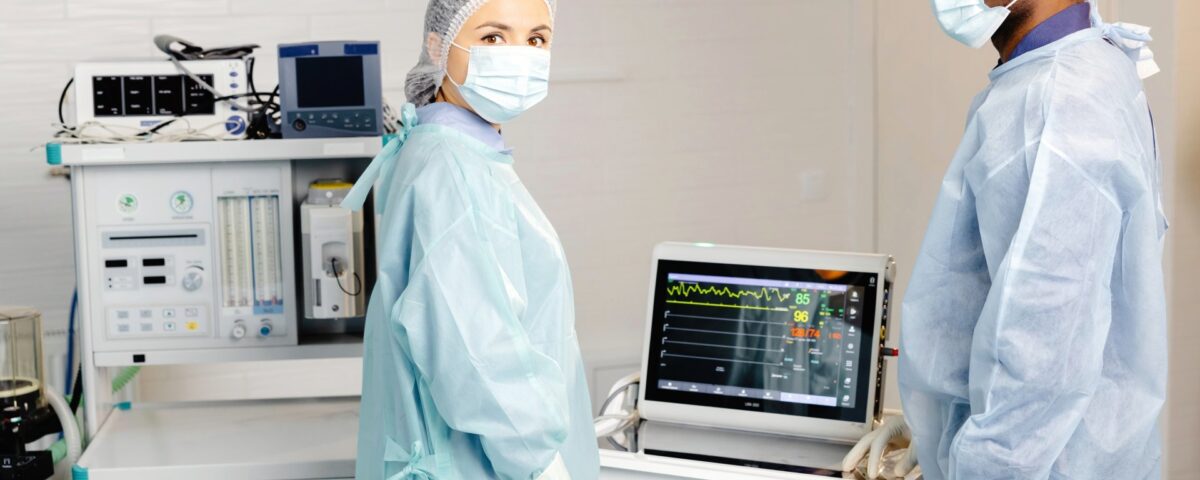
The Science Behind Medical Weight Loss Approaches
October 3, 2025
Understanding Practices for Daily Skin Care
October 3, 2025Board certified cardiologists complete four years of medical school after earning an undergraduate degree, covering subjects such as anatomy, physiology, and pharmacology. Clinical rotations provide hands-on experience in various medical specialties. Students must also pass the United States Medical Licensing Examination (USMLE) Steps 1 and 2, which assess their knowledge of medical science and clinical skills. Here are a few things to know about the qualification of a board certified cardiologist:
Training Process
After completing medical school, cardiologists enter a three-year internal medicine residency program, gaining hands-on experience under the supervision of experienced physicians. Residents rotate through hospital wards, outpatient clinics, and emergency departments, developing practical skills while managing a diverse range of patient cases. The program is accredited by the Accreditation Council for Graduate Medical Education (ACGME), which sets national training standards.
Following residency, doctors pursue a three-year cardiology fellowship, focusing on cardiovascular care and advanced procedures. Fellows participate in diagnostic testing, catheterization, and cardiac imaging under the supervision of experienced cardiologists. They also manage patients across various cardiovascular conditions, applying their skills in clinical settings. The fellowship combines rigorous training with practical experience to develop expertise in cardiovascular disease.
Certification Process
The American Board of Internal Medicine (ABIM) administers the Cardiology Board Examination, which candidates take after completing fellowship training from an ACGME-accredited program. This comprehensive test covers a wide range of cardiovascular medicine and patient care topics, assessing both knowledge and clinical judgment. Board certification demonstrates a commitment to ongoing professional development and adherence to high standards of excellence.
Continuing Education
Board certified cardiologists maintain their certification through ongoing education, and the American Board of Internal Medicine (ABIM) requires participation in Maintenance of Certification (MOC) activities at regular intervals. These activities often include knowledge assessments, practice improvement projects, and patient safety modules. Completing them helps cardiologists stay informed and adapt to changes in their field.
Ongoing certification encourages professional growth while reinforcing accountability, which benefits both the cardiologist and their practice. Cardiologists can apply strategies and insights gained from these activities to refine their approach. This process supports consistent standards of care and fosters continued expertise over time.
Hospital Requirements
Certified cardiologists need hospital privileges to practice in medical facilities, and hospitals review their credentials, training records, and malpractice history before granting access. Peer review processes regularly assess clinical competence and professional conduct. These evaluations help maintain high standards of care. Together, these safeguards support patient safety and support the delivery of high-quality treatment.
Licensing Obligations
All practicing cardiologists must hold valid state medical licenses. State medical boards verify education, training, and examination credentials before issuing licenses, confirming that a physician meets the legal requirements. Licenses must be renewed periodically, and continuing medical education credits are often required. Some states also set additional rules specifically for cardiology practice.
Periodic license renewal allows boards to track ongoing competency and professional development. Cardiologists may need to document the hours of completed education or training, and these records support accountability. State boards can review complaints or disciplinary actions as part of their oversight. This process helps maintain standards for patient care and professional conduct.
Finding a Board Certified Cardiologist
Patients can confirm a cardiologist’s board certification through the American Board of Medical Specialties website, and hospital or medical group directories often list credentials and training backgrounds. State medical board websites provide license verification and any disciplinary history, offering additional transparency. Board certification reflects advanced training and comprehensive testing in cardiology. Patients benefit from seeking care with board certified cardiologists for optimal heart health outcomes, so start reviewing credentials when choosing a specialist.




